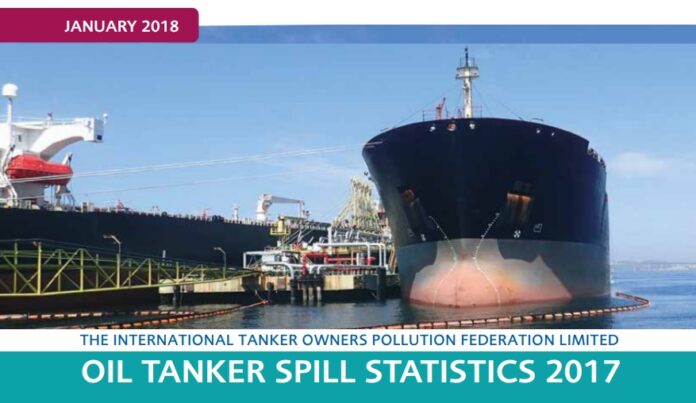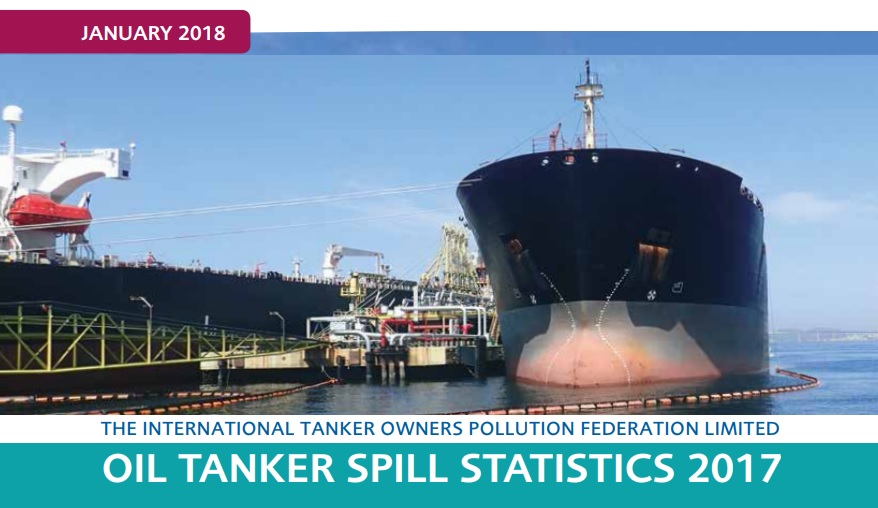
(www.MaritimeCyprus.com) TOPF is a not-for-profit organisation established on behalf of the world’s shipowners and their insurers to promote effective response to marine spills of oil, chemicals and other hazardous substances. Technical services include emergency response, advice on cleanup techniques, damage assessment, claims analysis, assistance with spill response planning and the provision of training and information.
Since 1968, ITOPF technical staff have responded onsite to almost 800 shipping incidents in 99 countries, to provide scientific and objective advice on clean-up measures, the effects of pollutants on the environment and economic activities, and on compensation. ITOPF has also provided advice remotely for numerous other incidents. These incidents can involve oil, chemical and dry bulk and packaged cargoes, as well as bunker fuel
from all types of ship. Advice is also given occasionally in relation to oil spills from other potential sources of marine pollution, including pipelines and offshore installations, and physical damage to coral reefs resulting from ship groundings.
ITOPF maintains a database of oil spills from tank vessels, including combined carriers, FPSOs and barges. This contains information on accidental spillages of persistent and non-persistent hydrocarbon oil since 1970, except those resulting from acts of war. The data held includes the location and cause of the incident, the vessel involved, the type of oil spilt and the spill amount. For historical reasons, spills are generally categorised by size, <7 tonnes, 7-700 tonnes and >700 tonnes (<50 bbls, 50-5,000 bbls, >5,000 bbls), although the actual amount spilt is also recorded. Information is now held on over 10,000 incidents, the vast majority of which fall into the smallest category i.e. <7 tonnes.
Information is gathered from published sources, such as the shipping press and other specialist publications, as well as from vessel owners, their insurers and from ITOPF's own experience at incidents. Unsurprisingly, information from published sources generally relates to large spills, often resulting from collisions, groundings, structural damage, fires or explosions.
For 2017, two large spills were recorded (>700 tonnes) and four medium spills (7-700 tonnes).
The first large spill occurred in June when a tanker sank in the Indian Ocean with over 5000 tonnes of oil on board. The second incident involved a tanker which sank off the coast of Greece in September spilling about 700 tonnes of oil.
Of the four medium sized spills two were recorded in January 2017 in South Asia and Southeast Asia; both resulted from collisions and involved the release of bunker fuel. A third spill was reported in East Asia in August. This also involved bunker fuel and resulted from a vessel grounding in bad weather. The fourth medium-sized spill occurred in October in the USA.
Quantity of oil spilt in 2017
The total volume of oil lost to the environment recorded in 2017 was approximately 7,000 tonnes, the majority of which can be attributed to the large spill (>700 tonnes) that occurred in the Indian Ocean in June.
Over the last 48 years, statistics for spills greater than 7 tonnes from tankers show a marked downward trend as illustrated below.

Tanker spills from 1970 to 2017
The number of large spills (>700 tonnes) has decreased significantly over the last few decades and since 2010 averages 1.8 per year.

A decline can also be observed with medium sized spills (7-700 tonnes). Here, the average number of spills per year in the 1990s was 28.1, reducing to 14.9 in the 2000s and is currently 4.9 for the 2010s (not a complete decade).
While increased tanker movements might imply increased risk, it is encouraging to observe that the downward trend in oil spills continues despite an overall increase in oil trading over the period (figure below right).
When looking at the frequency and quantities of oil spilt, it should be noted that a few very large spills are responsible for a high percentage of the oil spilt. For example, in more recent decades the following can be seen:
• In the 1990s there were 358 spills of 7 tonnes and over, resulting in 1,134,000 tonnes of oil lost; 73% of this amount was spilt in just 10 incidents.
• In the 2000s there were 181 spills of 7 tonnes and over, resulting in 196,000 tonnes of oil lost; 75% of this amount was spilt in just 10 incidents.
• In the eight year period 2010-2017 there have been 53 spills of 7 tonnes and over, resulting in 47,000 tonnes of oil lost; 80% of this amount was spilt in just 10 incidents.
In terms of the volume of oil spilt the figures for a particular year may be severely distorted by a single large incident. This is clearly illustrated by incidents such as ATLANTIC EMPRESS (1979), 287,000 tonnes spilt; CASTILLO DE BELLVER (1983), 252,000 tonnes spilt and ABT SUMMER (1991), 260,000 tonnes spilt (Figure 7).
In the period 1970 to 2017, 50% of large spills occurred while the vessels were underway in open water; allisions, collisions and groundings accounted for 59% of the causes of these spills. Perhaps unsurprisingly, these same causes account for an even higher percentage of incidents when the vessel was underway in inland or restricted waters, being linked to some 99% of spills.
A summary of the top 20 major spills that have occurred since the TORREY CANYON in 1967 is given below. It is of note that 19 of the 20 largest spills recorded occurred before the year 2000. A number of these incidents, despite their large size, necessitated little or no response as the oil was spilt some distance offshore and did not impact coastlines. For this reason some of the names listed may be unfamiliar. EXXON VALDEZ and HEBEI SPIRIT are included for comparison although these incidents are further down the list.




















